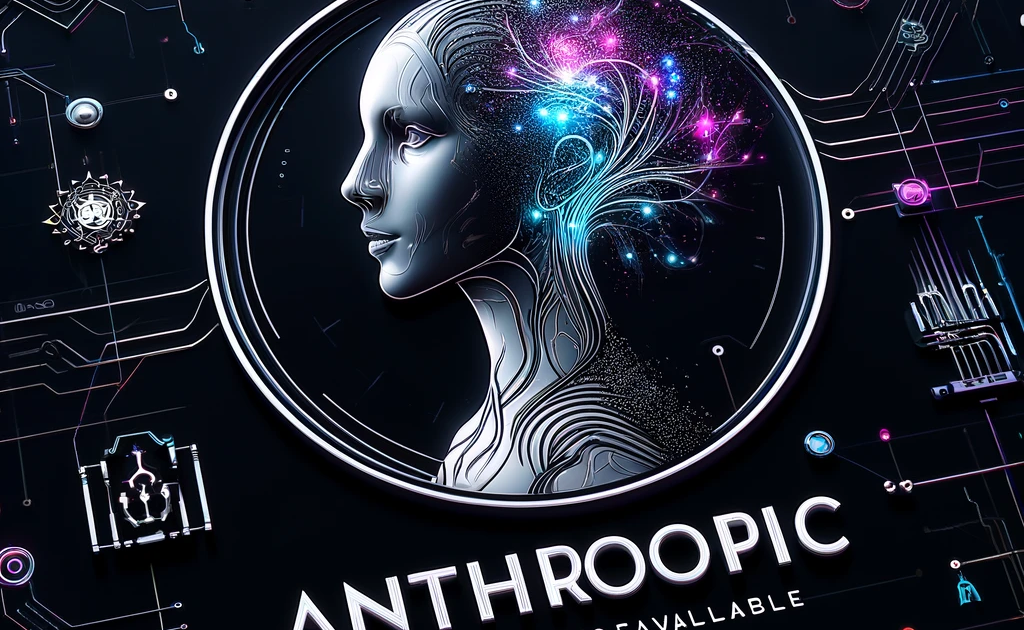Claude 3Product UpdateAnthropic
Claude 3, now available on Continuity Cafe
March 29, 2024
Discover Claude 3, latest version of Anthropic's AI model, sets new industry benchmarks across a wide range of cognitive tasks, available to try for free today.

Introduction
Continuity Cafe, the platform that brings together multiple cutting-edge AI models, is thrilled to announce the launch of Anthropic’s latest offering: the Claude 3 model family. This state-of-the-art suite of AI models, which includes Claude 3 Haiku, Claude 3 Sonnet, and Claude 3 Opus, sets new industry standards across a wide range of cognitive tasks, offering users unparalleled intelligence, speed, and versatility.
The Power of Choice and Versatility
One of the key advantages of Continuity Cafe is its ability to provide users with a choice of AI models, each with its own unique strengths and capabilities. With the addition of the Claude 3 family, users can now select the optimal balance of intelligence, speed, and cost for their specific application. Whether you need the raw power of Claude 3 Opus, the speed and efficiency of Claude 3 Haiku, or the balanced performance of Claude 3 Sonnet, Continuity Cafe has you covered.
Moreover, the Claude 3 models boast sophisticated vision capabilities, able to process a wide range of visual formats, including photos, charts, graphs, and technical diagrams. This versatility is particularly valuable for enterprise customers, who often have a significant portion of their knowledge bases encoded in various formats like PDFs, flowcharts, or presentation slides.
Unparalleled Intelligence and Accuracy
The Claude 3 models, particularly Opus, have demonstrated remarkable performance on common evaluation benchmarks for AI systems. From undergraduate-level expert knowledge (MMLU) to graduate-level expert reasoning (GPQA) and basic mathematics (GSM8K), Opus exhibits near-human levels of comprehension and fluency on complex tasks. This level of intelligence is a game-changer for businesses looking to leverage AI for advanced applications.
In addition to its impressive intelligence, the Claude 3 models have demonstrated a twofold improvement in accuracy on challenging open-ended questions compared to Claude 2.1, while also reducing the occurrence of incorrect answers. Businesses relying on AI models to serve their customers can trust in the accuracy of the outputs generated by the Claude 3 family.
Rapid Response Times and Recall
Speed is another area where the Claude 3 models excel. Haiku, the fastest and most cost-effective model in its category, can process a dense 10,000-token research paper in less than three seconds. Sonnet is twice as fast as its predecessors, Claude 2 and Claude 2.1, making it ideal for tasks that demand rapid responses, such as knowledge retrieval or sales automation. Even Opus, with its unmatched intelligence, delivers speeds similar to Claude 2 and 2.1.
Moreover, with near-perfect recall capabilities, as evidenced by its performance on the ‘Needle In A Haystack’ (NIAH) evaluation, Claude 3 Opus is a reliable choice for applications that require processing large amounts of data.
Comparative Analysis of AI Models
In the ever-evolving landscape of artificial intelligence, benchmarking different models provides insight into their capabilities and specializations. This comparison involves multiple AI models evaluated across various tasks, ranging from knowledge-based questions to problem-solving and coding.
Evaluation Metrics The performance of each model has been measured across several benchmarks:
The table compares the performance of several AI language models, including Claude 3 (Opus, Sonnet, Haiku), GPT-4, and Gemini 1.0 Ultra on various knowledge and reasoning tasks. The scores represent the percentage of questions answered correctly or the average score achieved on each benchmark.
| Benchmark | Claude 3 Opus | Claude 3 Sonnet | Claude 3 Haiku | GPT-4 | Gemini 1.0 Ultra |
|---|---|---|---|---|---|
| Undergraduate level knowledge MMLU | 86.8% | 79.0% | 75.2% | 86.4% | 83.7% |
| Graduate level reasoning GPQA, Diamond | 50.4% | 40.4% | 33.3% | 35.7% | - |
| Grade school math GSMSK | 95.0% | 92.3% | 88.9% | 92.0% | 94.4% |
| Math problem-solving MATH | 60.1% | 43.1% | 38.9% | 52.9% | 53.2% |
| Multilingual math MGSM | 90.7% | 83.5% | 75.1% | 74.5% | 79.0% |
| Code HumanEval | 84.9% | 73.0% | 75.9% | 67.0% | 74.4% |
| Reasoning over text DROP, F1 score | 83.1 | 78.9 | 78.4 | 80.9 | 82.4 |
| Mixed evaluations BIG-Bench-Hard | 86.8% | 82.9% | 73.7% | 83.1% | 83.6% |
| Knowledge Q&A ARC-Challenge | 96.4% | 93.2% | 89.2% | 96.3% | - |
| Common Knowledge HellaSwag | 95.4% | 89.0% | 85.9% | 95.3% | 87.8% |
Overall, the Claude 3 models (Opus, Sonnet, Haiku) perform well across most benchmarks, often outperforming GPT-3.5 and Gemini 1.0. GPT-4 also shows strong performance, particularly on the knowledge-based tasks like MMLU and ARC-Challenge.
The Future of AI at Continuity Cafe
For businesses and individuals alike, the Claude 3 models offer an unparalleled opportunity to leverage the power of cutting-edge AI technology in their applications. Whether you’re looking to automate customer service, generate high-quality content, or analyze complex data sets, the Claude 3 family has the intelligence, speed, and versatility to meet your needs.
As we look to the future, Continuity Cafe remains committed to pushing the boundaries of AI technology and delivering innovative solutions that empower users to achieve their goals.
Conclusion
Anthropic has once again demonstrated its commitment to advancing the field of AI. By offering users a choice of models with varying levels of intelligence, speed, and cost, Continuity Cafe is making it easier than ever for businesses and individuals to harness the power of AI in their applications. As we look to the future, it’s clear that the Claude 3 models will play a significant role in shaping the way we interact with and benefit from artificial intelligence.